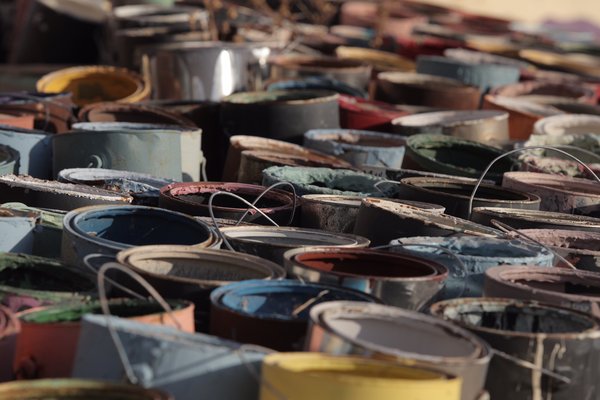People use so many household products that sometimes it's sometimes easy to forget that they need to be disposed properly to avoid harming the environment or causing health issues.
But what's the best way to do that? Is it OK to throw old batteries in the trash? How should the old paint cans sitting in the garage be disposed?
- MORE HEALTH
- Marijuana may delay fetal growth during pregnancy, study finds
- Shoveling snow sends 11,500 Americans to the hospital every year
- Winter often brings achy joints – but it's unclear why
The U.S. Environmental Protection Agency offers this advice:
"To avoid the potential risks associated with household hazardous wastes, it is important that people always monitor the use, storage and disposal of products with potentially hazardous substances in their homes."
Improper disposal includes putting them down the drain, on the ground or down storm sewers, as well as putting them in the regular trash.
U.S. residents generate about 1.6 million tons of hazardous waste each year. It is estimated that the average American home contains almost 100 pounds of waste.
The most common household hazardous wastes are cleaners, stains, varnishes, batteries, automotive fluids, pesticides, herbicides and certain paints. They usually fall into one of the following categories: flammable, corrosive, explosive or toxic/poison.
Always follow manufacturer instructions explicitly and pay particular attention to proper storage and disposal. Also, never store hazardous material in anything but its original container and never mix products.
Check with your local environmental or solid waste agency for specific regulations and to see whether they have any specific collection methods for household hazardous waste. Even empty containers of hazardous material can pose a health threat because of residual materials.
In the Philadelphia region, there are household hazardous waste events designed to accept your hazardous waste materials. The materials accepted include:
• Solvent-based paints and stains
• Paint thinner
• Varnish
• Paint Stripper
• Pesticides
• Chemical Fertilizers
• Grill propane cylinders
• Swimming pool chemicals
• Bathroom and oven cleaners
• Drain cleaners
• Aerosol cans
• Kerosene
• Old Gasoline
• Artists' paints
• Household batteries
To find the schedule for the next household hazardous waste event near you, click here. Leftover products also can be shared with neighbors or donated to a charity, business or government agency.


